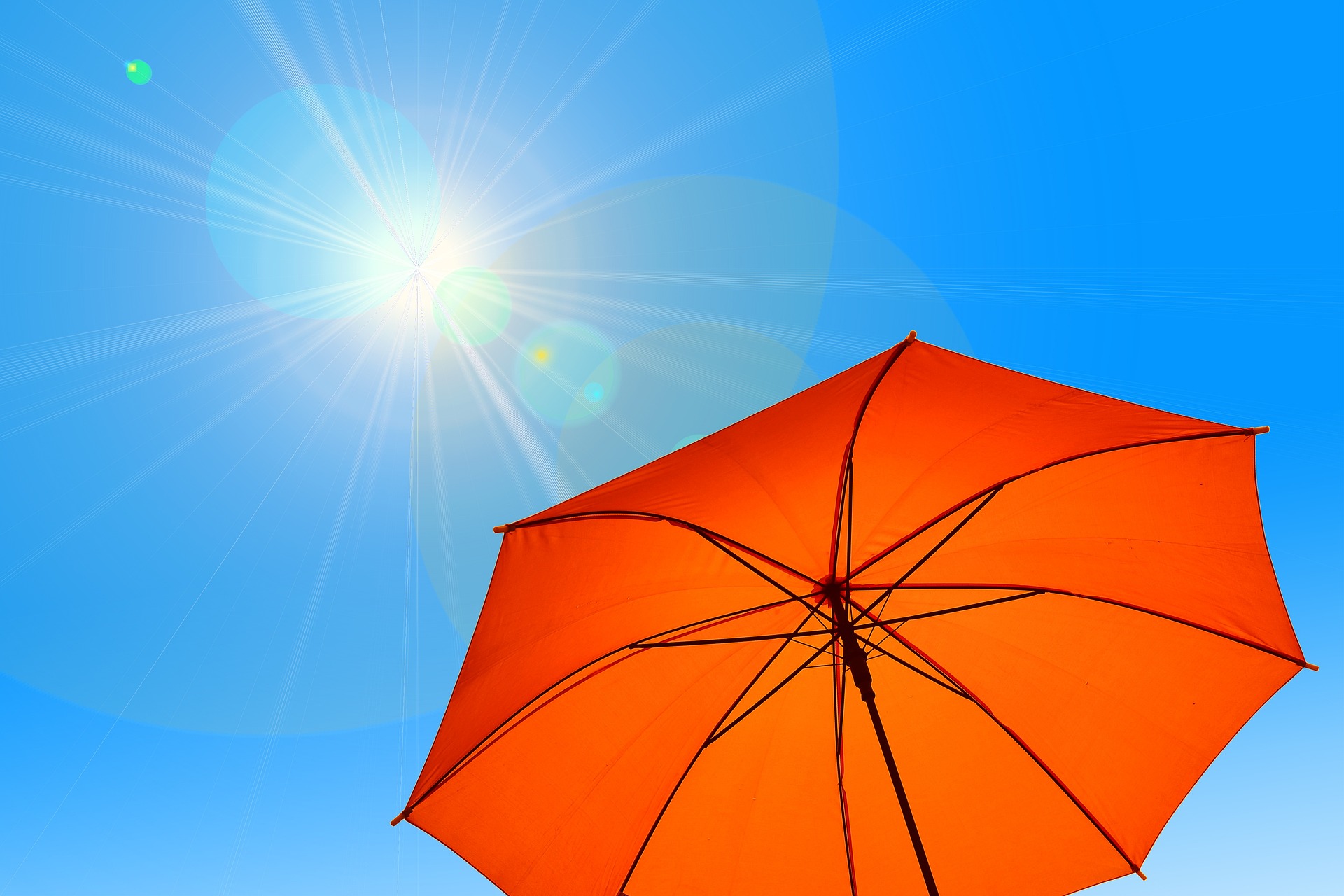Dr. Jennifer Bumabusch
Across Canada, we are experiencing an unprecedented acceleration of climate-related weather events. Examples of these events include heat/extreme temperatures, wildfires, and flooding. Some groups within our population, such as older adults and people with disabilities, are more vulnerable and experience worse outcomes during these events. Sources of climate vulnerability for these groups include factors such as physiological changes and differences, inadequate housing, poverty, and gender.
Our research aims to work with these equity-deserving groups to foster climate resilience and equip their communities with resources and systems-level supports that limit or mitigate the impacts of climate-related weather events.
What’s new…

Jennifer Baumbusch: Invited speaker with the Climate Change Chapter of the American Academic of Pediatrics, Dec 10, 2024, “From vulnerability to resilience: working with families of children with medical complexity in the context of climate-related weather emergencies“

Jennifer Baumbusch: Keynote presented at From Extreme Heat to Fire: Disparate Effects through the Arc of Human Health Conference: American Academy of Pediatrics, May 9, 2025. “Hot inside and out: Exploring climate vulnerability and resilience among children with medical complexity and their families in the context of extreme heat and wildfires.”

September 2025: Always on duty-Fostering climate resilience in the nursing profession: A discussion paper
“As with the SARS-CoV-2 pandemic, climate change is a global phenomenon reshaping the nursing profession. While nursing organizations have produced numerous position statements on nursing and climate change, these tend to focus exclusively on the profession’s important role in mitigating and adapting health systems and providing climate-informed patient care. However, to adequately prepare for the acceleration of climate change impacts, we also need to focus on supporting the health and wellbeing of the nursing workforce. The purpose of this discussion paper is to examine key areas of climate vulnerability for nursing and provide recommendations that address these factors.“

“Planetary health is the idea that human health and the health of our planet are inextricably linked. The healthcare sector promotes human health but has a significant impact on our natural world. In Canada, some hospitals are leading the way towards promoting planetary health in an increasingly challenging context. The purpose of this study was to understand how Canadian hospitals support planetary health, specifically through green teams and sustainability offices.“

“Drawing upon a subset of data from two qualitative studies, we explored the experiences of families during climate-related weather events in British Columbia, Canada.“
“Across all of the weather events, children with medical complexity experienced social isolation and, for some, increased anxiety. Participants also shared adaptive measures, or strategies, they used during these events.“

Beyond, The University of British Columbia, June 2024, 5 tips for staying cool at home without air conditioning
Some Canadians are just learning what’s considered common knowledge to others who have experienced daily life in hotter climates: there’s much you can do to cool down your home and yourself without air conditioning.
Dr. Jennifer Baumbusch, a professor at the UBC School of Nursing, says many of these strategies are easy to adopt. However, she cautions, every home and person is different. “Research has shown that above certain temperatures, fans can’t effectively reduce body temperatures or prevent heat-related illnesses in people at risk,” she says. She advises people to identify their risk before a heat wave and plan for how to stay cool.

City News Vancouver, May 10, 2024, Sun, heat safety tips as Metro Vancouver gets early blast of summer
“I think we’re seeing the heat come sooner in the year and more intense throughout the summer, so it’s a really good time to just practice, make sure that you have all the things in place. If you are looking after someone who is at a distance, making sure you call and check in on them. If a person is starting to sound confused on the phone or unwell, try to get an in-person visit or … using emergency services to check on them”

Maureen McGrath’s Health Show Podcast, March 24, 2024, If you don’t think that Climate Change impacts nurses, think again! Dr. Jennifer Baumbusch talks about her nurse’s study.
Who would think of that climate change may impact nurses who care for people living in Long Term Care Facilities? Dr. Jennifer Baumbusch talks about recruitment for the study “Nurses’ Experiences of Caring for Older People during Climate-Related Weather Events in Canadian Long-term Care Homes.”

The Alzheimer’s Society of Nova Scotia, October 26, 2023, Strategies to Foster Climate Resilience Among People Living with Dementia. Presentation at the 34th Annual Conference: Weaving connections in Dementia Care
Climate emergency preparedness is top-of-mind for many Nova Scotians after the devastating fires and floods of this past summer. Dr. Jennifer Baumbusch is joining our conference to share how people living with dementia and those who care for them can build climate resilience.

The Alzheimer’s Society of Canada, Dementia Talks!, October 25, 2023: Video: Let’s talk about air pollution and dementia
Research shows that air pollution can increase dementia risk. During this Talk on October 25, we discussed why, and what it means now given Canada’s record wildfire smoke season in 2023.

Global News, August 2023: With high heat incoming, fewer than 400 of BC’s free air conditioners have been installed
“It is a popular program, but it also is a program that is in its very early stages,” the spokesperson explained. “The numbers, the growth that you’ve seen over the last couple of weeks will not be the pace moving forward.”

The Ubyssey, July 2023: Stay Cool: tips to stay safe in the summer heat
“Baumbusch also spoke about the importance of creating a network where people are checking-in on one another. “If you have older family members who might be more susceptible during the heat or people who have chronic illnesses to make sure that you’re checking in on them. But I think we also have to realize there are young people and students on campus who have chronic illnesses and might be disabled and also need to be checked in on,” she said.“

Global/Chorus Radio, July 2023: Heat Waves (part of Taking a road trip all along 7700km of the Trans-Canada highway episode, minute 9).
Why strategies to cope with higher temperatures aren’t keeping pace with global warming

The Alzheimer Society of BC, June 2023: Plan ahead for summer heat, wildfires and other emergencies
The Alzheimer Society of B.C. has invited Dr. Jennifer Baumbusch, professor and Canadian Institutes of Health Research Chair in Sex and Gender Science at the University of British Columbia’s School of Nursing, to share with British Columbians some strategies that will help people living with dementia and their care partners navigate these challenging situations.

Editorial, April 2023, International Journal of Older People Nursing: Taking the bad news with the good: The climate crisis and care for older people
“As healthcare worsens the climate crisis, it is threatening the health of the people in our care now and dramatically increasing the number of people who will need our care in the future. We are endangering health and well-being while we seek to heal. Pause with us and think about what that means and how vital it is that we act. Current healthcare practices are unsustainable and risk long-term damage that cannot be undone if we do not act now to transform how we do what we do…“

CBC News, March 2023: B.C. government review into providing ACs during heat wave still incomplete — 3 months past its deadline
“Air conditioners are a key strategy for saving people’s lives and keeping them well during heat events,” said Dr. Jennifer Baumbusch, a professor at the University of British Columbia’s school of nursing, who works with older adults. “The majority of people who died during the heat dome were older adults, many were women, many were disabled, and many were also poor.”

CBC, March, 2023: Provincial funding programs should allow immediate family to be paid caregivers: advocates.
Baumbusch says since the pandemic, the care-giving workforce has shrunk. In some situations, those looking to hire a professional caregiver won’t be able to find one..

Baumbusch, J., Blakey, E., Carapellotti, A., Dohmen, M., Kagan, S.H. & Melendez-Torres, G.J. (2021). This alarm is not a drill: we call gerontological nurses to act on climate change. International Journal of Older People Nursing, 16(5), e12421.
“The world is contending with what in American medical dramas would be called a Code Blue. But this crisis is no fiction, it will not end after an hour of livestreaming. We, nurses, know too well that climate change is not a myth nor is it simply some distant looming crisis“

